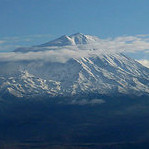Looking for some exciting reading material at the end of a long day in the university library, or sitting in front of spreadsheets at work? Wondering how to find some erotica which won’t be as cringeworthy as the now infamous 50 Shades of Grey? Velislav Ivanov brings you the second in a series of sneaky peeks into the wonders of European erotic literature.
Delta of Venus

It is rare that the story surrounding a book is as interesting as the tale it tells. Bulgakov’s surreptitious nocturnal writing of “The Master and Margarita” for instance, is as integral to the posthumously published text as the grotesque narrative it reveals – only by knowing that he burned the unfinished manuscript in fear of it being discovered do we find out that, indeed, “Manuscripts don’t burn.” On a lighter and lewder level, Anais Nin’s collection of erotic fiction “The Delta of Venus,” which she wrote in the 1940s, makes an intriguing story in itself.
The thing with great writers is that they are largely only recognised in old age, or after their death. Which in turn implies that while young and bursting with inspiration and ideas, they are often broke. Such was the case with Nin, who like her close associate Henry Miller was pressed to write erotic stories for a mysterious commissioner whom she never knew. She only communicated with a wealthy collector, who claimed to be a go-between. Chances were, however, that the commissioner was only his alter ego, as he was all but exposed on a number of occasions. The initial feedback she got from him was unequivocal: “Leave out the poetry and descriptions of anything but sex. Concentrate on sex.”
A writer as sensual and expressive as Nin – who was of a French-Cuban background – could only react with disappointment to this straightforwardness. “He almost caused us to take vows of chastity,” she writes in her diaries, “because what he wanted us to exclude was our own aphrodisiac – poetry.” If she could not thus have her own arousal writing these stories, she could at least amuse herself and her literary clique. They gathered at soirees and told extravagant tales of lust and lechery, which she exaggeratedly wrote down. Hence, in the two hundred pages of the book, few “deviancies” – as shocking as they are humorous, implicitly mocking the masturbatory commissioner – are neglected. Various forms of homosexuality, a number of incestuous attractions, passion for a corpse, and a hermaphrodite make up only a part of the plethora of perversions.
Nonetheless, Nin’s stories are hardly devoid of artistic qualities. Even though she explicitly describes her work as “literary prostitution,” she somehow manages to be unambiguous in bedroom scene descriptions without ever being vulgar. She succeeds in drawing on her extensive vocabulary of adjectives and metaphors so as to avoid repugnant obscenities in her language. At her best, Nin does exceptionally well in conveying physical senses, if not emotions, in her words.
Being forbidden to occupy herself with something as irrelevant as “poetry,” the world these stories unfold – they are loosely related, as some of the characters recur – is driven exclusively by sexual desire. Problems arise whenever it is not fulfilled; monogamy and chastity are the only taboos; and only a coital climax can bring a shred of joy to its characters. Thus, the frigid Lilith is condemned to perpetual frustration, while a lecherous Basque seeks satisfaction with women with a particular mole. And in what is perhaps most finely woven story in the book, a veiled woman invites strangers to a singular tryst, only to be revealed later in a post-modern twist that there is in fact another veil behind their entwined bodies.
Sex loses its power and magic when it becomes explicit, mechanical, overdone, when it becomes a mechanic obsession. It becomes a bore.
In the end, there is something surreal about this book; something resembling a Freudian dream. Bereft of emotions or personalities beyond their sexual urges, these characters inhabit a universe that is at the same time alien and familiar; whole and incomplete. This strangeness was perceived by Nin herself and bluntly described in an angry rant to the mysterious commissioner:
“Sex loses its power and magic when it becomes explicit, mechanical, overdone, when it becomes a mechanic obsession. It becomes a bore. You have taught us more than anyone I know how wrong it is not to mix it with emotion, hunger, desire, lust, whims, caprices, personal ties, deeper relationships that change its colour, flavour, rhythms, intensities… There are so many minor senses, all running like tributaries into the mainstream of sex, nourishing it. Only the united beat of sex and heart together can create ecstasy.”









